
Dreimal sieben Gedichte aus Albert Girauds "Pierrot lunaire", commonly known simply as Pierrot lunaire, Op. 21, is a melodrama by Arnold Schoenberg. It is a setting of 21 selected poems from Albert Giraud's cycle of the same name as translated into German by Otto Erich Hartleben. The work is written for reciter who delivers the poems in the Sprechstimme style accompanied by a small instrumental ensemble. Schoenberg had previously used a combination of spoken text with instrumental accompaniment, called "melodrama", in the summer-wind narrative of the Gurre-Lieder, which was a fashionable musical style popular at the end of the nineteenth century. Though the music is atonal, it does not employ Schoenberg's twelve-tone technique, which he did not use until 1921.
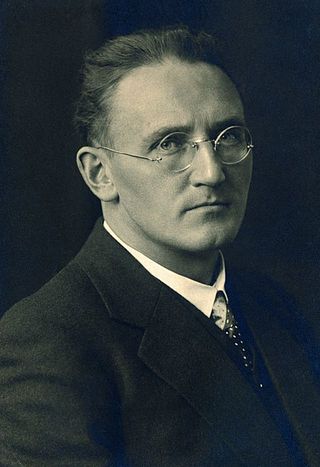
Hermann Scherchen was a German conductor, who was principal conductor of the city orchestra of Winterthur from 1922 to 1950. He promoted contemporary music, beginning with Schoenberg's Pierrot Lunaire, followed by works by Richard Strauss, Anton Webern, Alban Berg, Edgard Varèse, later Iannis Xenakis, Luigi Nono and Leon Schidlowsky. He usually conducted without using a baton.

Marin Alsop is an American conductor, the first woman to win the Koussevitzky Prize for conducting and the first conductor to be awarded a MacArthur Fellowship. She is music director laureate of the Baltimore Symphony Orchestra and chief conductor of the Vienna Radio Symphony Orchestra, the Ravinia Festival, and the Polish National Radio Symphony Orchestra. She was elected a Fellow of the American Academy of Arts and Sciences in 2008 and to the American Philosophical Society in 2020.

Kent George Nagano is an American conductor and opera administrator. Since 2015, he has been Generalmusikdirektor (GMD) of the Hamburg State Opera.

Daniel John Harding is a British conductor.
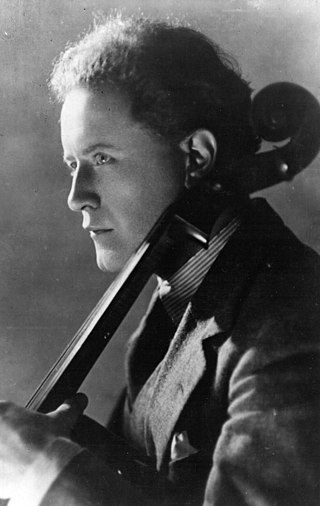
Johannes Hendrikus Philip Kindler was a Dutch American cellist and conductor who founded the National Symphony Orchestra. He was married to painter Alice Kindler and Persis Chase Myers.

Markus Stenz is a German conductor. He studied at the Hochschule für Musik Köln with Volker Wangenhein and at Tanglewood with Leonard Bernstein and Seiji Ozawa.
Arthur Weisberg was an American clarinetist, bassoonist, conductor, composer and author.
Beverley Davison is a British violin virtuoso, currently fronting an act she founded called Classical Cabaret: Hot Strings (ensemble) or "Classical Cabaret Duo".

Bethany Beardslee is an American soprano. She is particularly noted for her collaborations with major 20th-century composers, such as Igor Stravinsky, Milton Babbitt, Pierre Boulez, George Perle, Sir Peter Maxwell Davies and her performances of great contemporary classical music by Arnold Schoenberg, Alban Berg, Anton Webern. Her legacy amongst mid-century composers was as a "composer's singer"—for her commitment to the highest art of new music. Milton Babbitt said of her "She manages to learn music no one else in the world can. She can work, work, work." In a 1961 interview for Newsweek, Beardslee flaunted her unflinching repertoire and disdain for commercialism: "I don't think in terms of the public... Music is for the musicians. If the public wants to come along and study it, fine. I don't go and try to tell a scientist his business because I don't know anything about it. Music is just the same way. Music is not entertainment."
Robert Carlisle Black was an American conductor, pianist and composer. He was most particularly associated with the promotion, performance and recording of contemporary classical music, but he also played and conducted the standard repertoire.
Robert Lindemann was a German-American clarinetist.
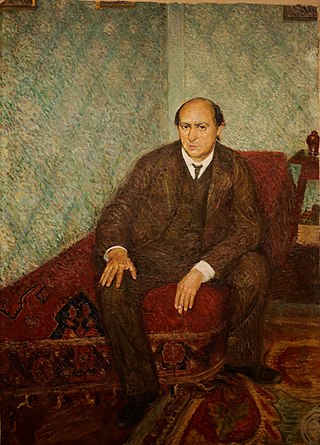
The Chamber Symphony No. 1 in E major, Op. 9 is a composition by Austrian composer Arnold Schoenberg.

Symphony Number One (SNO) is a chamber orchestra primarily devoted to new music based in Baltimore, Maryland. SNO performs each year in musical venues in Mount Vernon, Baltimore, at Morgan State University, and across the city. Jordan Randall Smith is Symphony Number One's founder and current music director.

SNOtone is an independent record label founded in Baltimore, Maryland, in 2015 by Jordan Randall Smith. The label's catalogue is devoted to classical and contemporary classical music.

More is the third live album by contemporary classical ensemble Symphony Number One, featuring music by Natalie Draper, Andrew Posner, and Jonathan Russell. The album was released on December 16, 2016 and debuted to critical attention in local and national publications.
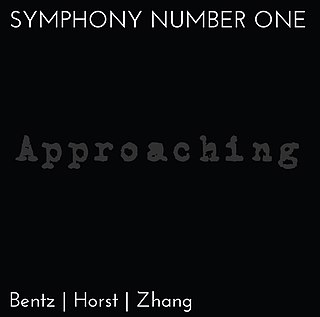
Approaching is the fourth live album by contemporary classical chamber orchestra Symphony Number One. The album was released on November 3, 2017 and features the music of Nicholas Bentz, Martha Horst, and Hangrui Zhang. The majority of the disk is taken up by Nicholas Bentz’s work Approaching Eternity.
Andrew M. Boss is an American composer. He completed his Doctor of Musical Arts at the University of Texas and his masters at the Peabody Institute of The Johns Hopkins University. His teachers include Dan Welcher, Donald Grantham, Russell Pinkston, Kevin Puts, Daniel Crozier, and Donald Waxman. Boss's work, Tetelestai, was commissioned by Jerry Junkin and the University of Texas Wind ensemble and premiered in November 2014. The work reflects the feelings and emotions behind the birth, death, and resurrection of Jesus Christ. The work has received its Australian premiere by John Lynch and the Sydney Conservatorium of Music Wind Symphony in September 2016.
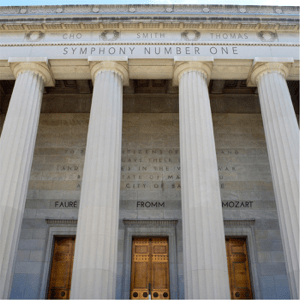
Symphony Number One is the debut album by Baltimore chamber orchestra Symphony Number One. The album was released in November 2015 to positive reviews. Composer Mark Fromm’s offered the eponymous Symphony No. 1, the first commission by the orchestra. Fromm, a bassoonist, opens the work with an extended bassoon solo.

Pietro Scarpini was an Italian classical pianist, harpsichordist, composer and conductor, who had an international performing career as a pianist from the late 1930s to the late 1960s. He was particularly known for interpreting 20th-century repertoire, including Schoenberg's Pierrot lunaire and Busoni's "vast and fiendishly difficult" Piano Concerto.














